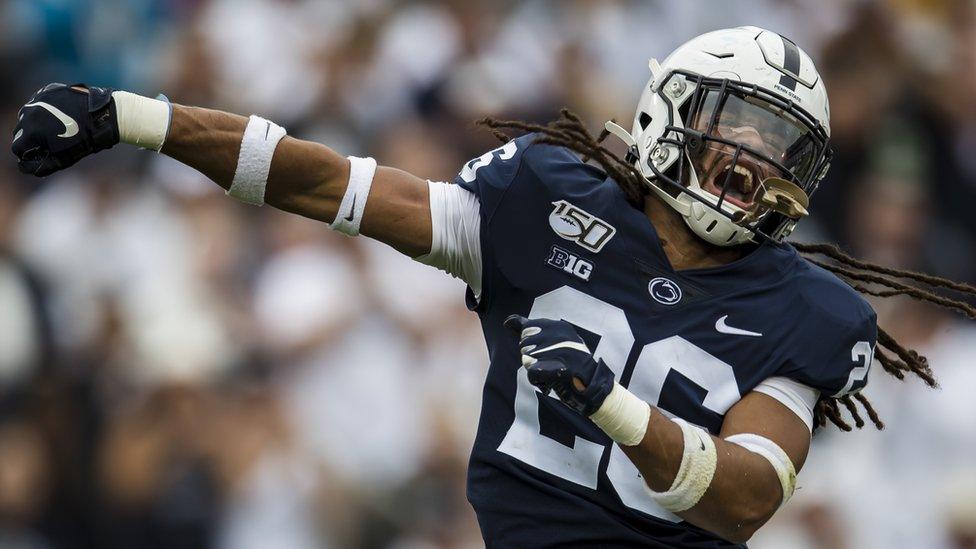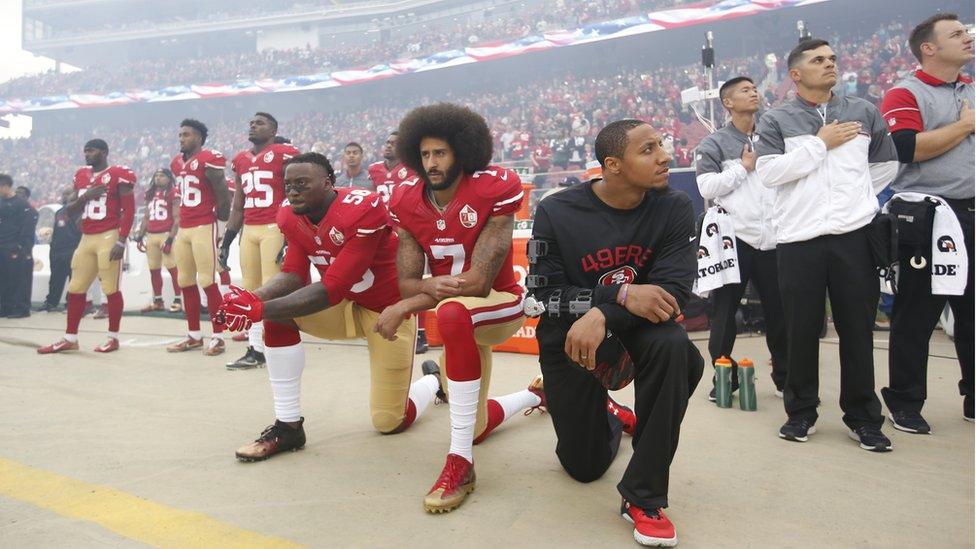American Football: Anti-dreadlocks letter sparks backlash
- Published

Jonathan Sutherland, from Ottawa, Canada, plays for Penn State Nittany Lions
A letter sent to an American Football player at Penn State university from a former student has been criticised on social media as racist.
The author said he was a fan, but "couldn't help but notice your awful hair... those shoulder-length dreadlocks look disgusting".
"We miss the clean-cut young men and women from the [old] days," the letter, thought to be addressed to Jonathan Sutherland, 21, continued.
Nittany Lions teammate CJ Holmes posted it on Twitter on Monday, writing: "I also have dreadlocks, tattoos and NFL dreams, these messages cannot be tolerated."
Penn State condemned the message, tweeting: "While we don't know the source of this letter or its authenticity, obviously its content does not align with our values."
While the letter reminisces about the old days of Penn State, many people on social media have highlighted the fact that the club was rocked with sex abuse scandal.
In 2013 Penn State University was ordered to pay $60m (£37m) to 26 men who say they were sexually abused as children by football coach Jerry Sandusky.
The letter's author questioned if there were "mirrors in the locker room" and if the player's "parents or girlfriend" had told him his hair was "certainly not attractive".
It asked Mr Sutherland to "remember you represent all Penn Staters both current and those alumni from years past. We have stopped watching the NFL due to the disgusting tattoos, awful hair and immature antics."
You might also be interested in:
The letter has been shared more than 27,000 times, as many condemned the sentiments as racist and out-of-touch.
Another player, Antonio Shelton, wrote: "Explain to me how this isn't racist."
"Dear Jonathan, keep rocking the dreadlocks and keep being you! Being a Penn Stater has nothing to do with appearance," tweeted fan Eric Kahler., external

Eli Harold, Colin Kaepernick and Eric Reid protested about racial inequality by kneeling during the US national anthem
"Everyone on Penn State should have dreadlocks for the next game," wrote another.
The National Football League (NFL) has been dogged by accusations of failing to support black players.
In February, players Colin Kaepernick and Eric Reid reached a settlement over complaints that the league blacklisted them over their "take a knee" protests that began in 2016.
Instead of standing during the national anthem, the players began to kneel at the opening of games to call attention to police brutality and racial inequality.